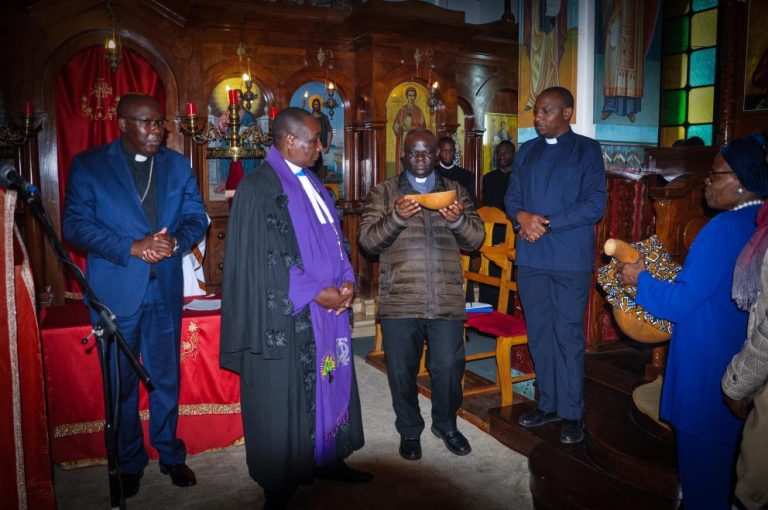Church leaders, individuals, ecumenical organizations, people with disabilities and their organizations came together under the theme “You shall love the Lord your God…and your neighbor as yourself.
“I would like to congratulate those who proposed this theme… It is rich, it is timely and it is viable; this applies to us,” said the Rt. Rev. Patrick Thegu Mutahi, Moderator of the Presbyterian Church of East Africa, who was present at the meeting. “The passages we read capture generosity, kindness and magnanimity… Generally, (these) are spiritual, natural and traditional, but people don’t practice them.
Mutahi said kindness and generosity opened many doors in communities, but people found it difficult to practice these qualities due to reasons such as greed, selfish interests and ignorance.
“We don’t need to be mean because we seek power and position… because we want to get that position, and when we think people are blocking, we step on their toes… I wish we knew how temporary these positions are,” the moderator said.
Teams from the Catholic Archdiocese of Ouagadougou, Protestant Churches, ecumenical bodies and the Chemin Neuf Community in Burkina Faso, a West African country in the Sahel region, wrote the prayers and reflections of the week.
This country of 21 million people – 64 percent Muslims, 26 percent Christians and 9 percent followers of traditional African religions – has seen an increase in terrorist attacks, lawlessness and human trafficking humans.
These events left at least 3,000 dead and nearly two million people internally displaced, while thousands of schools, health centers and town halls remained closed. The violence also destroyed most of the country‘s socio-economic and transport infrastructure.
Terrorists attacked churches, forcing those in the north to close their doors. Priests, pastors and catechists were killed during worship.
However, the country’s Christian, Muslim and traditional religions have worked in solidarity to find lasting solutions for the country’s peace, social cohesion and reconciliation.‘It is a problem.
In Nairobi, Church leaders shared a “calabash” as a symbol of welcome, hospitality and fellowship. In Burkina Faso, families use a gourd to share water with travel-weary guests.
Rev. Isaiah Obare of the Evangelical Lutheran Church of Kenya said the theme and ecumenical prayer was a call to Christians to practice the Christian ethos of character, credibility and moral values in all circumstances.
“Although it is a one-day event today, the theme will remain our Christian compass until 2024,” wrote Obare, current president of the International Ecumenical Movement-Kenya chapter, in the introduction of the celebrations booklet.


